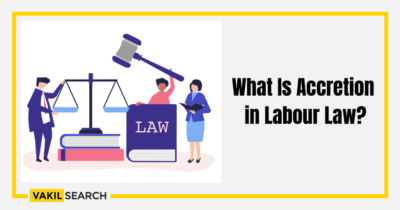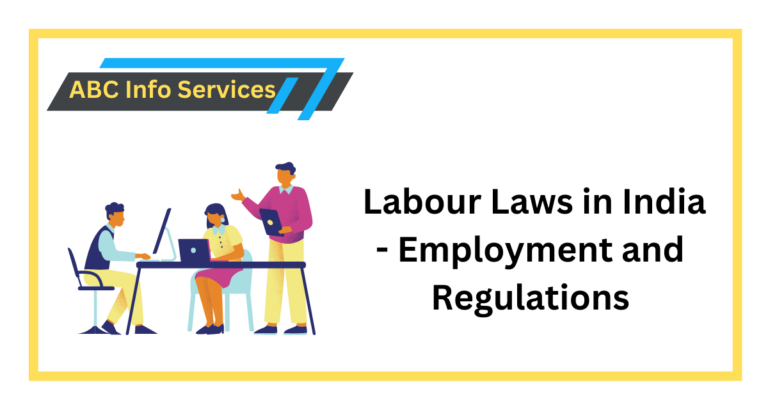Navigate the complexities of Child Labour Law and discover the Child Labour Age Limit in India with our informative guide.
As per the Child Labour Law (Prohibition and Regulation) Act, 1986 a “child” is defined as anyone under the age of 14 years. A child of such an age is predicted to play, study, and be carefree regarding their life. However, such expectations barely meet reality because children, by force or by will, are pressured for employment in a harsh environment that becomes a threat to their lives.
Child labour contributes to children’s underdevelopment and incomplete physical and mental development, which slows their growth. In order to reduce child labour in India, the government of the country has taken appropriate measures through the introduction of rules and regulations.
Furthermore, if the entire business community of the country commits to taking steps to end child labour and assist needy children in receiving early childhood education, the creation of a vibrant and robust India will be possible. This article contains a brief overview of the rules and regulations and the laws for the prevention of child labour in the country.
Child Labour Age Limit
In India, employing children less than the age of 14 in any type of work is considered a cognisable offence and would attract a jail sentence for a maximum of 2 years. Children under the age of 14 may, however, be employed in certain family-based jobs.
Further, children between the ages of 14 and 18 are called adolescents, and they cannot be employed in any type of hazardous occupation. As per the Child Labour (Prohibition and Regulation) Amendment Bill, 2012, penal provisions are also applicable to the parents of the underage child employed.
Children Below the Age of 14 Years
Notably, children under the age of 14 are not permitted to perform any type of work in any process or business. However such a restriction does not apply if a child is engaged in business after school hours or vacation for the purpose of providing assistance to family or family members, which is not harmful business. In relation to such children, family implies a father; mother, brother, sister, father’s sister and brother, and mother’s sister and brother.
Furthermore, a child under the age of 14 would be permitted to work as an artist in the audiovisual entertainment sector, which includes films, television, advertisements, or any other sports activities other than circus. But all such work is subject to conditions and safety measures.
Child Labour Act in India
The Child Labour (Prohibition and Regulation) Act in India is a pivotal legislation designed to safeguard the rights and well-being of children. Enacted to combat the exploitation of minors, this law prohibits the employment of children under the age of 14 in hazardous occupations and processes. It also sets regulations for adolescents between 14 and 18 years old, ensuring their work doesn’t interfere with their education and health.
The Act outlines stringent penalties for violators, aiming to eradicate the scourge of child labor and provide a protective framework for young individuals. Additionally, it emphasizes the importance of rehabilitation and education for rescued child laborers, aiming to integrate them back into society. Through its provisions and enforcement, the Act stands as a significant step toward securing the future and rights of India’s children.
Adolescents are Children Aged 14 to 18 Years
As per the Child Labour (Prohibition and Regulation) Act, 1986, adolescents are allowed to work in non-dangerous occupations and procedures. However, in the case of adolescent employment, the employer must meet the following requirements:
- Every day’s working time shall be determined in such a way that it shall not exceed three hours in any circumstance.
- In the course of a working period of three years, an adolescent shall have a gap for rest for a minimum of one hour subsequent to working for three hours.
- Adolescents were not permitted to work between the hours of 7 p.m. and 8 a.m.
- Overtime work is not permitted for adolescents.
- At any time, adolescents are not permitted to work in more than one occupation.
- At least one holiday per week must be provided to adolescents.
International Legal Framework Regarding Child Labour:
– The international legal framework on child labour encompasses conventions and agreements from organizations such as the International Labour Organization (ILO) and the United Nations. These agreements emphasize the need to protect the rights of children and eradicate all forms of child labour globally.
Types of Child Labour:
– Child labour manifests in various forms, including hazardous work, exploitation, trafficking, and forced labour. Understanding these types is crucial for developing effective strategies to combat and prevent child labour.
Legal Age for Working in India:
– In India, the legal age for working is determined by labour laws, which specify the minimum age for employment. Adhering to these age restrictions is essential to ensure the well-being and development of children.
Efforts by Government of India to Control Child Labour:
– The Government of India has implemented a range of initiatives, policies, and programs to combat child labour. These efforts include awareness campaigns, education programs and stringent enforcement of child labour laws to create a protective environment for children.
Norms for Employing Adolescents
Employers who hire adolescents must keep a register that includes the following information:
- Each adolescent employed must provide their birth date and name in order to be allowed to work.
- The working period and hours of an adolescent and the period of rest time that is allowed to adolescents
- The type of work performed by an adolescent
In addition to the above details, upon allowing adolescents to work in an occupation, the establishment’s owner shall send some of the following information to the local inspector within a period of 30 days, such as:
- Name of the company, address of the company
- Name of the person who is actually in charge of the establishment’s management.
- The procedure or occupation is carried out in the establishment.
- Address to which communications relating to the establishment shall be sent
Child Labour Laws in India
There are several Child Labour Law regulations in India that prohibit child labour, like:
The Factories Act, 1948:
As per the cited Act, children younger than the age of 14 are not permitted to work in any factory. This Child Labour law also stipulated who, when, and for how long children aged 15 to 18 could work in factories.
The Mines Act, 1952:
As per this child labour law, children aged less than 18 years are not permitted to work in any factory. Mines are considered one of the most dangerous occupations, contributing to significant major accidents that have taken the lives of children in the past, and are completely prohibited for them.
The Child Labour (Prohibition and Regulation) Act, 1986:
As per this child labour law, children younger than the age of 14 are not permitted to work in hazardous businesses as prescribed in the law list.
The Right of Children to Free and Compulsory Education Act, 2009:
As per this child labour law, it is mandatory for children aged between 6 to get free and compulsory education. This legislation also required that in any private school, at least 25% of seats be reserved for physically challenged or vulnerable groups of children.
Penal Provisions for Violating Child Labour Laws
The violation of the child labour law contributes to fines and imprisonment. In this aspect, any individual who employs or allows any child to work in violation of the Child Labour (Prohibition and Regulation) Act, 1986, is punishable by jail time for a period of at least 6 months but not more than 2 years. In addition, the employer could face a fine ranging from ₹20,000 to ₹50,000.
Penal provisions are also applicable to parents. In this aspect, parents who pressure their children to engage in family occupations, as child artists (without permitting them to go to school), or any other banned businesses under the law could be punished. Parents are initially punished with a warning under the law, but if they engage their child in illegal occupation again, they face a maximum fine of ₹10,000.
Conclusion
Child labour is one of the main reasons behind the harmful physical and mental development of children. In India, the government of the country is engaged in providing free and compulsory education for all children and has taken a number of steps to reduce child labour. Though child labour is a continuous issue and challenge in India because of the poverty, inadequate educational facilities, and development of the informal economy. Vakilsearch is a leading platform that provides useful and important information regarding child labour in India.
FAQs
What are the key provisions of the Child Labour (Prohibition and Regulation) Act in India?
The Act prohibits the employment of children in certain occupations and processes and outlines regulations to ensure the working conditions for adolescents are safeguarded.
Are there specific industries or occupations where child labor is strictly prohibited?
Yes, hazardous industries and occupations are strictly off-limits for child labour in India. A list of such industries is provided under the law.
What penalties are imposed for violating child labour laws in India?
Violations of child labour laws can lead to penalties, including fines and imprisonment for employers. The severity of penalties is designed to deter any form of child labour.
How does the law address hazardous work for children in India?
The law identifies and prohibits children from engaging in hazardous work, to protect them from physical and psychological harm.
What initiatives or programs exist to rehabilitate children rescued from child labour?
Rehabilitation programs for children rescued from child labour focus on providing education, skill development and psychological support to facilitate reintegration into society.
Can children work in family businesses under Indian child labour laws?
Certain exemptions may exist for family-owned enterprises, but conditions and restrictions are in place to ensure the well-being and education of the child.
How can individuals report cases of child labour, and what is the process for enforcement?
Individuals can inform authorities or use helplines to report instances of child labour. The enforcement process involves investigation and legal action against violators.
Are there specific exemptions or conditions under which child labour is allowed in India?
Generally, child labour is prohibited, but there may be specific conditions or exemptions defined by the law. However, these are typically subject to stringent safeguards to protect the child's interests.
Read more,










